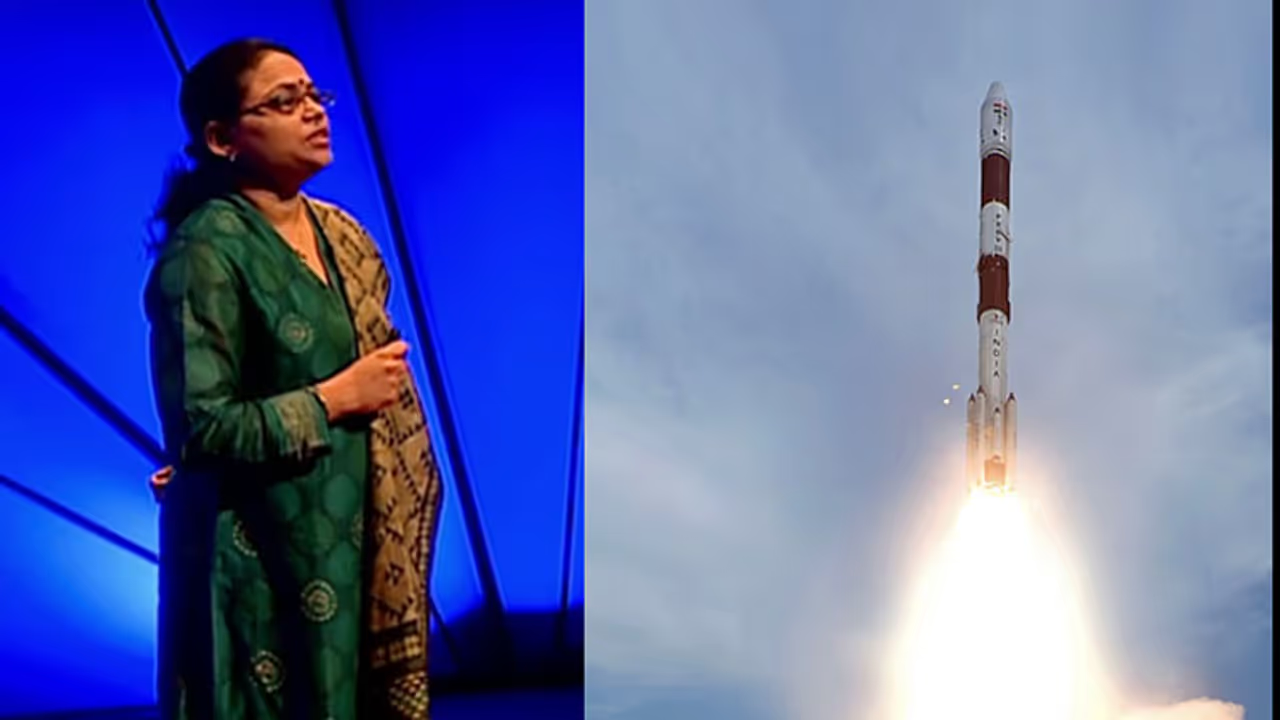Many like to wonder why we spend money on ISRO, and Mars missions. Ritu Karidhal, the project manager of the Mars Orbiter Mission, clears such doubts.
In the 1960s, Dr Vikram Sarabhai, considered to be the father of the Indian space programme, pushed strongly for India to pursue a space programme aggressively. The idea was looked down upon back then, with the government believing it was beyond India's scope and also unnecessary, considering the challenges India faced back then.

While our societal challenges have not disappeared, today the Indian Space Research Organisation (ISRO) is a shining jewel of our country, taking great strides in the fields of space exploration and scientific advancement.
Speaking at a TEDx Talk in Mumbai in December 2015, Ritu Karidhal, the project manager of the Mars Orbiter Mission (MOM), shared India's vision for the future and the importance of going to Mars.
Watch:

Many like to question why we are spending large amounts of funds on jaunts to Mars when Indians are starving on the streets back home. This idea, which is little more than a mental block, is flawed on several levels.
To begin with ISRO its not a 'sick' Public Sector Unit. On the contrary, its proven expertise at successfully launching satellites into orbit has won it major contracts from around the world.
In a written response to a question in Rajya Sabha, Minister of State in the Prime Minister's Office Jitendra Singh, said all commercial activities of ISRO are managed by Antrix. In total Antrix has earned Rs 896 crore over the last five years.
Though this amount is only 10% of the funds allocated to it, the revenues are expected to grow in the coming years.
Secondly, the idea that research in space technologies has no bearing on the daily life of Indians is a falsehood. An example that Ritu Karidhal pointed out in her talk is quite accurate. An algorithm designed for space later helped better detection of breast cancer via X-rays.
There are numerous such examples. All technology, once created, can be used in a diverse manner. The trick is to invent the technology, which ISRO rightfully does every year.
Beyond this, space is the final frontier for Humans. In time, we shall leave this planet and explore our solar system. If India has to take its place at the high table of nations as a great power, then we must prove that we are at the cutting edge of human civilisation. And that edge is in outer space.
It is a testament to the scientists at ISRO that they went from transporting their satellites on bullock carts in 1981, to now being considered among the premier space organisations in the world.
And for now, the pinnacle of ISRO's achievements is MOM, the Mars Orbiter Mission. As Ritu Karidhal pointed out it was the first Mars mission to succeed in the first attempt, it was one of the cheapest Mars missions ever; it was done in only 18 months by a one of the youngest teams ever to lead such a mission.
A spectacular achievement that should be celebrated just as widely as any cricket World Cup or Olympic Gold or Bollywood movie. After all, those achievements are merely Earth-bound. ISRO's achievements are taking us into the very heavens itself.
